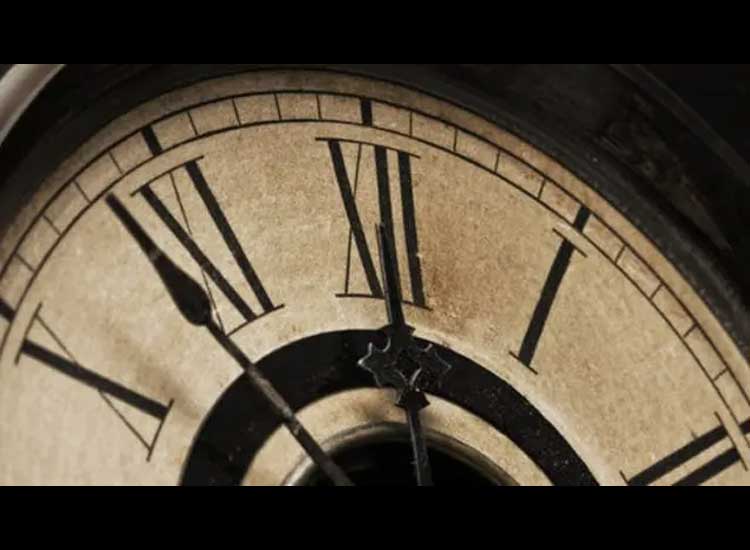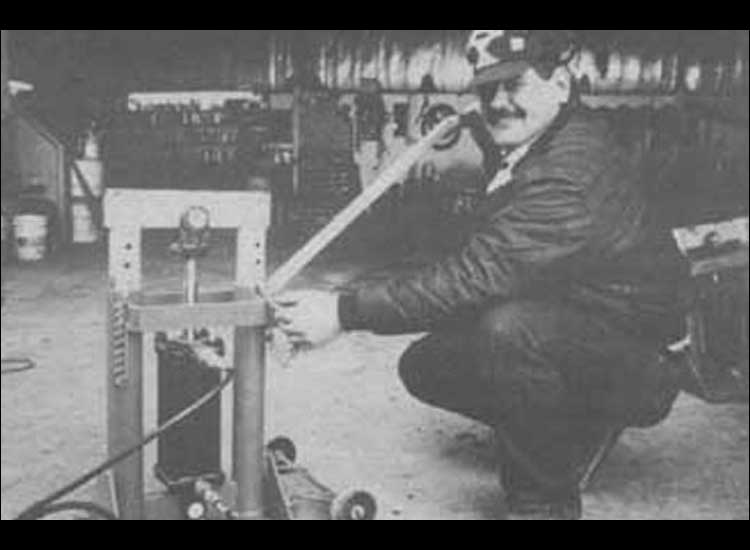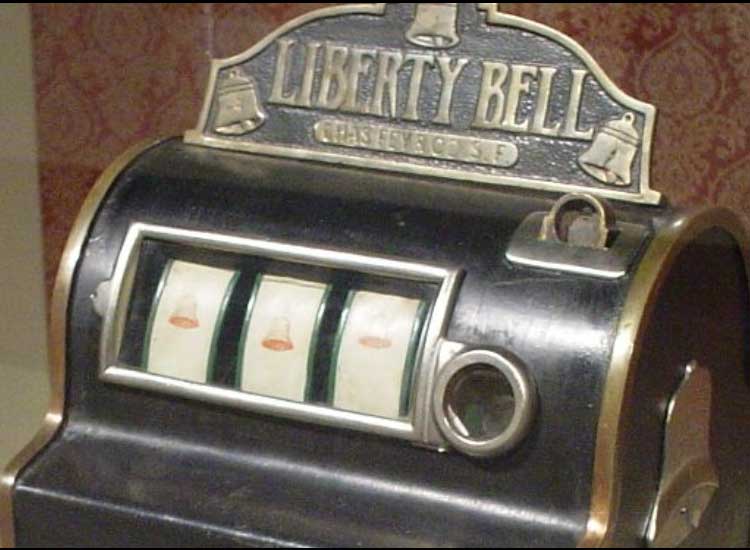History of the Discovery of Time, Who Said a Day is 24 Hours? – Discover the eternal meaning of time in human civilization, shaping our interactions with the environment from ancient to modern eras. Reveals the fascinating journey of timekeeping, from early observations to cultural innovation over millennia.
The history of time turns out to be a fascinating story, filled with innovations and discoveries that reflect the power of human creativity. From the use of water clocks in Ancient Egypt to sophisticated clock mechanisms in medieval Europe, the evolution of time measuring devices reflects the development of societies and their needs. Apart from being a practical tool, time is also an integral aspect in a society’s belief system and culture, reflecting values that are respected and upheld.
The study of the history of time not only provides insight into technological progress, but also offers a unique perspective on how humans perceive, appreciate and utilize time as an integral component in the course of their civilization. So, what is the history of the discovery of time itself?
1. Ancient Egyptians were the first to create 24 hours per day
The ancient Egyptians, with their extraordinary intelligence and observation of nature, led the way in creating the 24-hour day time system. Using the sun’s shadow and the position of the stars in the sky as benchmarks, they overcame the limitations of instruments such as sundials already used by other cultures. Although peoples such as the Chinese, Babylonians, Greeks, and Romans had utilized similar instruments, the challenge for them was the natural uncertainty that influenced timing. Ancient Egypt, in its wisdom, solved this problem by determining the number of hours based on the appearance of 12 stars at night.
In their quest for timekeeping, the ancient Egyptians combined their knowledge of astronomy with unique methods. Although the sun did not always appear or give accurate times, they determined that an hour had passed when certain stars appeared at night. Although the stars were not visible during the day, policy was decided to divide the day into 12 fixed parts, creating the basis for the 24-hour division we know today.
The ancient Egyptians’ decision to create a 24-hour time system by referring to the night stars and dividing the day into 12 parts remains a critical basis for the continuous measurement of time. Their innovative legacy in astronomy and time measurement not only influenced Egyptian civilization, but also made important contributions to the global evolution of the time systems we use today.
2. Time Division of 1 Hour 60 Minutes by the Babylonians
The great influence of the Babylonians on the division of time is undeniable, introducing the sexagesimal system involving the number 60. They chose 60 as the basis for calculating time, creating the 60 minute and 60 second hour structure that we know today. The practicality of the number 60 is key to the success of this system, because it is the smallest number that can be divided by six, helping to produce time fractions that are easy to calculate.
The Babylonians’ choice to use the number 60 was not only related to practicality, but also to the number’s unique properties. With the first digit ranging from 1 to 6, the sexagesimal system simplifies the concept of dividing time into fractions that are easy to remember and calculate. For example, time divisions such as 1/2 hour into 30 minutes, 1/3 hour into 20 minutes, and 1/4 hour into 15 minutes can be quickly and efficiently calculated.
The number 60 also stands out for its flexibility as a number that can be divided by various numbers, including 1, 2, 3, 4, 5, 6, 10, 12, 15, 20, 30, and 60. The sophistication of the Babylonian time calculation system with the number 60 not only embraces practicality, but also provides a strong foundation for time measurement that is efficient and easy to apply in everyday life.
3. Humans never knew the concept of giving names to days
In early human history, the concept of giving names to days did not exist. The reason is simple: humans have not yet discovered the weekly division of time. At that time, the only known divisions of time were months, and the number of days in a month was too many to name them individually. However, as humans began to build cities, the desire to have special days emerged, especially for trade. This is the beginning of the market day.
Market days are set at various days, such as every tenth, seventh, or fifth day. The Babylonians decided to set a market day on the seventh day, during which they did not work, but gathered to trade and celebrate religious ceremonies. The Jews adopted this custom, but set aside the seventh day for religious purposes, which gave rise to Sunday. Each day of the Jewish week is given a name, referring to the Sabbath meaning “He rested,” which is Saturday. For example, Wednesday is called the fourth day, referring to the four days after Saturday.
The development from market days to rest and religious days created a strong legacy in the division of time. Over time, society developed a weekly system that combined economic and spiritual activities. Babylonian and Jewish initiatives in determining market and religious days laid the foundation for the creation of the days of the week, giving identity and structure to time beyond the nameless series of days of early human history.
4. Giving Name Days Based on the Names of Gods
The tradition of naming the days of the week has traveled a long way from the Egyptians to the Anglo-Saxons, reflecting the influence of culture and beliefs across civilizations. The Egyptians, with a week of seven days, named the days after the five planets, the Sun and the Moon. The Romans then adopted Egyptian names to form their week, introducing days such as solar, lunar, and planetary days.
However, the names of the days that we know today do not originate from Roman names. In contrast, the Anglo-Saxons, at one time, named days after their gods. The day of the Sun becomes Sunnandaeg or Sunday, the day of the Moon becomes Monandaeg or Monday, and the day of Mars becomes Tiwesdaeg or Tuesday. The god Woden gave the name Wednesday, while the Roman Jupiter changed to Thursday (Thursday) after taking the name of the god Thor. The day of Frigg, wife of the God Odin, was given to Friday, and Saturday remained following the Roman name, derived from the day of Saturn.
In Indonesia, apart from Sunday and Saturday, the names of Monday to Friday come from Arabic. Monday, Tuesday, Wednesday, Thursday and Friday have the sequential meanings of two, three, four, five and many in Arabic. Meanwhile, Sunday was long spelled in Malay as Doweek before becoming Sunday at the end of the 19th and early 20th centuries. Saturday, it is said, is taken from the Hebrew, sabbath, which means “He stopped.” Each name day reflects a long journey and cultural richness involving history, religion and linguistics in various civilizations.
5. Division of Days in a Year
Within the complexity of determining time, there are various calendar systems that reflect diverse cultures and world views. From calculating the course of the Sun such as the Gregorian calendar, to the Islamic calendar which is based on the Moon’s journey, as well as the Jewish and Chinese calendars which combine the Sun and Moon. Other systems, such as the Tzolkin cycle of the Mayan calendar, the Pawukon calendar of Bali, and the Wetonan calendar, illustrate the diversity of approaches to recording time.
The history of the calendar records shifts and transformations, especially when the Gregorian calendar replaced the Julian and Roman calendars. The Roman calendar only had 10 months with the start of the year in March, failing to accommodate winter which was supposed to occur in the autumn months. Reforms initiated by Julius Caesar in 46 BC led to the change of name to the Julian Calendar, which was used for almost 1600 years.
The superiority of the Gregorian Calendar became clear when it replaced the Julian Calendar, correcting inaccuracies in determining the seasons. This is due to the fact that the solar year is 11 minutes and 14 seconds shorter each year. Within 128 years, the year was reduced by one day, and in 1580, after almost 1600 years of use, the calendar was reduced by 10 days. With greater precision and accuracy, the Gregorian Calendar remains the valid calendar today.
6. Using the Sun’s Shadow to See Changes in Time
Since the third millennium BC, humans have used the observation of the sun’s shadow as the oldest method for marking changes in time. One tool that emerged from these observations was the sundial, a device equipped with a scale and a gnomon. Various cultures created their own unique versions of sundials. The Greeks, for example, created the hemispherium, a bowl-shaped sundial cut out of stone with a gnomon and carvings explaining the distribution of time throughout the 12 hours of the day. However, ancient Egyptian boldness emerged in the form of their monumental sundials, which used obelisks or stone columns as majestic time markers.
The Greeks, with their love of art and architecture, created sundials that reflected beauty in stone. The Greek hemisphere, made of stone and shaped like a truncated bowl, utilized gnomons and carvings that provided a visual explanation of the distribution of time throughout the 12-hour day. This beautiful sundial is not only a practical tool for measuring time, but also a work of art that beautifully combines function and aesthetics.
The ancient Egyptians made a monumental contribution in the form of their sundials which used obelisks or stone pillars to mark time. This Egyptian sundial not only functions as an accurate time measuring tool but also as a monument that reflects the greatness of Egyptian civilization. With their precision in observing the sun’s shadow, Egyptian sundials provide a deep understanding of the movement of the sun and time, proving the sophistication of science and engineering possessed by the ancient Egyptians.
7. Time Measurement of Water Droplets
Although sundials provided an early way to measure time, their main weakness lay in their dependence on weather and sunlight. In responding to this challenge, developments in pneumatic science and understanding of hydraulic phenomena paved the way for the emergence of water clocks or clepsydrae. This water clock consists of a simple vessel filled with water and has a funnel through which the water drips out. The process of dripping water is an accurate measure of time. The emergence of the water clock was a significant driver in the evolution of time measuring devices, and its development mainly occurred in India and China in the first millennium BC.
Water clocks, or clepsydrae, offered an effective solution to the drawbacks of sundials by utilizing pneumatic and hydraulic principles. In India and China, in the first millennium BC, people began to develop early versions of clepsydrae. This tool consists of a vessel filled with water, and through a funnel placed at the bottom of the vessel, the water will slowly drip.
The amount of water dripping became an indicator of time, allowing humans to measure time without reliance on sunlight. Clepsydrae not only provided a practical way to measure time but also paved the way for further discoveries and developments in hydraulic science.
The advent of the water clock not only marked a major step in transcending the limitations of sundials but also made a significant contribution to the evolution of time measuring devices. Clepsydrae are evidence of human innovation in understanding simple principles such as air pressure and water flow. By bringing a new dimension to the measurement of time, water clocks opened the door to further advances in technology and science, carving out a trace of humanity’s journey in measuring time throughout history.
8. Use of Weather-Independent Hourglass
The hourglass was a breakthrough in measuring time, regardless of weather or sunlight. The shape is simple, consisting of two glass tubes connected by a narrow tube in the middle. Sand is filled at the top and slowly flows to the bottom, providing a visual indication of the passage of time. In the third century, the Greeks adopted the use of the hourglass, using it to mark the duration of speaking time in the Senate. The hourglass’s versatility in providing consistent time measurements made it an effective choice, and further developments continued in various parts of the world.
In the third century, the hourglass was introduced by the Greeks and was soon accepted as a practical tool for measuring time. The specialty of the hourglass lies in its ability to provide accurate and consistent time measurements without depending on weather factors. The Greeks adopted the hourglass, using it especially in the context of the Senate. The hourglass function is important for determining time limits in speeches or talks in the Senate, providing an orderly and efficient way of managing time in political decisions and discussions.
Further developments in the evolution of the hourglass occurred in mainland Europe, where a priest named Luitprand at France’s Chartres cathedral played a role in the development of this tool. The hourglass, with its simple but effective design, began to be widely used in various contexts, including in churches and in everyday life. The hourglass’s advantage in providing a reliable measure of time makes it a popular choice and continues to receive attention for further improvements in time measurement.
9. Tradition of burning candles during evening prayer sessions
During the Middle Ages, the Cluniac monastery in Burgundy, France, developed a unique custom of marking time during their evening prayer sessions. This tradition involves the burning of candles, which provide a visual clue to the duration of time spent in prayer. Christian monasteries in Europe of the time often adopted similar practices to guide their spiritual routines. The burning of candles became a special marker of time, creating an orderly and structured spiritual experience for the monks of the Cluny monastery.
The custom of burning candles that began in the Cluniac monastery was not only limited to the religious aspect, but also extended to everyday life. Its use evolved into an effective tool for indicating time duration in various contexts, such as auctions of goods and the process of electing leaders. Candles, with their ability to burn for specific periods of time, provide a practical solution in measuring and managing daily activities. This practice reflects how religious aspects could have an impact on the social and cultural life of society during the Middle Ages.
The use of candles not only serves as a practical marker of time but also carries deep symbolism. The candle, with its ability to light and go out, creates a metaphor for beginnings and endings, as well as changes in the passage of time. As a practical innovation, the use of candles in various contexts reflects the creative adaptation of society in that era in seeking efficient and meaningful ways to manage time and daily activities.
10. Creation of Foliot
In the late Middle Ages, interest in more precise timekeeping prompted European watchmakers to develop more sophisticated mechanisms. One key innovation was the use of a toothed wheel to adjust the escapement, a device that controls the movement of the watch. With these gear wheels, the clock movement could be set more precisely, creating the possibility of producing more precise clocks. This innovation was an important step in the evolution of clock technology and gave rise to a new approach to measuring time.
As part of improving the clock mechanism, watchmakers of the time installed a kind of rod or foliot to maintain the rotation interval of the gears. This rotation interval controller has a crucial role in maintaining the stability of the clock movement and ensuring that the measured time remains consistent.
By utilizing knowledge of astronomy and the principles of mechanics, innovators created clocks that were not only accurate but also reliable in keeping accurate time. A detailed description of the mechanism of this model of clock was recorded by Giovanni de Dondi, a professor of astronomy from Padua, Italy, in 1364, published under the title ‘II Tractus Astarii’.
Giovanni de Dondi, with his work entitled ‘II Tractus Astarii’, made an important contribution to the documentation and dissemination of knowledge about clock mechanisms in the 14th century. As a professor of astronomy, he not only created innovative clocks but also shared his knowledge with society through his written works. The detailed descriptions provided by de Dondi illustrate the significant advances in clock technology of his time and paved the way for further developments in clock science and mechanics.
Link Rekomendasi :
- Prediksi Togel hk
- okewla
- Situs togel resmi
- Casino online
- Okewla
- Okewla
- Okewla
- Situs toto macau
- Bo togel
- Slot Thailand
- Slot Thailand
- Slot online gacor
- Casino online
- Togel casino
- Situs slot gacor
- Slot gacor
- Okewla
- Okewla
- Okewla
- Okewla
- Okewla
- Togel casino
- Bo togel
- Okewla
- Okewla
- Okewla
- Okewla
- Okewla
- Okewla
- Okewla
- Okewla
- Okewla
- Okewla
- Okewla
- Okewla
- Okewla
- Okewla
- Okewla
- Okewla
- Okewla
- Okewla
- Okewla
- Okewla
- Okewla
- Togel casino
- Togel casino
- Togel casino
- Scatter Pink





